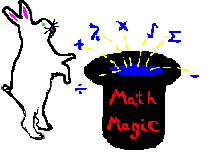

A. Many questions will give you a set of numbers or letters and ask how many numbers or how many words can be made from a set.
Ex [1] How many 6 letter words, real or imaginary, can be made from [N, U, M, B, E, R]?
Ex [2] How many 4 digit numbers can be made out of [1, 2, 3, 4]?
B. Dealing with letters:
1. If all the letters are distinct then the answer is n! where n is the number of letters.
Ex [1] How many 6 letter words, real of imaginary, can be made from [N, U, M, B, E, R]?
Since all the letters are distinct, we know the answer is 6! = 720.
The reason is because for the first letter we have 6 choices. The second letter we only have 5 choices. The third letter we only have 4 choices and so on.
So the answer is 6 x 5 x 4 x 3 x 2 x 1.
2. If all the letters are not distinct, then the answer changes. The answer becomes n!/a!, where a is the number of each indistinct letter.
Ex [2] How many 5 letter words, real or imaginary, can be made from [S, C, O, T, T]?
The answer is 5!/2! = 120/2 = 60.
The reason is because we have 2 T's. This limits are possibilities because we can have the word - STTOC and STTOC and they are the same word.
If we were given the letters [S, S, O, T, T] then the answer would become 5!/2!*2!, because we have 2 S's and 2 T's. If we were given [S, S, S, O, T] the answer would be 5!/3!, because we have 3 S's.
C. Dealing with numbers:
1. If all the numbers are distinct, AND one of them is not a 0, then the answer is n! where n is the number of digits given.
Ex [1] How many 4 digit numbers can be made using [1, 2, 3, 4]?
The answer is 4! = 24.
The reason is because we have 4 choices for the first digit, 3 for the second, and so on.
This means there are 4 x 3 x 2 x 1 possibilities.
2. If all the numbers are not distinct, AND one of them is not a 0, then the answer is n!/a!, where a is the number of each distinct digit.
Ex [2] How many 5 digit numbers can be made using [9, 3, 5, 7, 9]?
Because we have 2 9's the answer is 5!/2! or 60.
The reason why is because the number 99753 and 99753 are the same number.
Like above, when dealing with letters, if we had the digits [9, 3, 3, 7, 9] the answer would be 5!/2!*2! and if we had [9,9,3,7,9] the answer would be 5!/3!.
3. If all the numbers are distinct but one of the numbers is a 0, then the answer becomes: (n-1)*(n-1)!, where n is the number of digits. Instead of memorizing a formula, think through it logically. See below.
Ex [3] How many 4 digit numbers can be made using [3, 2, 1, 0]?
First, ask yourself how many possibilities are there for the 1st digit. There are only 3, not 4, since 0 cannot start a number.
The number of possibilities for the 2nd digit is also 3, since one number was taken out to be placed in the 1st digit. Then there are 2 possibilities for the 3rd and only 1 possibility for the last.
This means the probability is: 3 x 3 x 2 x 1 = 18.
4. If the numbers are not all distinct and you have at least 1 zero, then the answer is changed a little. You should follow step (3) above and work the problem as if they were all distinct. Then, in the end, divide by n! where 'n' is the number of repeated digits. See below.
Ex [4] How many 6 digit numbers can be made using [1, 2, 2, 2, 4, 0]?
If we treated all of these as distinct numbers then we would have an answer of 5 x 5 x 4 x 3 x 2 x 1 or 600. See step 3.
Since we have the digit 2 repeated 3 times, we need to divide by 3! or 6.
So the answer is 600/6 = 100.